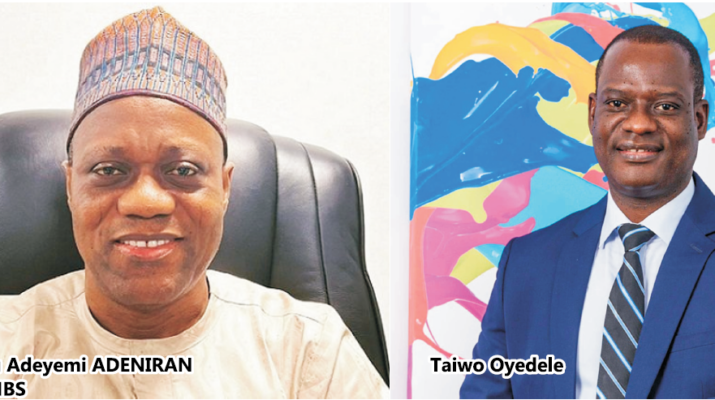The Federal Government’s planned policy of rebasing Nigeria’s economy to as high as $1 trillion Gross Domestic Product (GDP), as well as expansion of the tax net, may target shadow economic activities that are inimical to the society
By Ikenna Princewill
Proceeds of smuggling of any form and other forms of economic sabotage, trafficking in drugs and humans, as well as those from Yahoo-yahoo, prostitution and money laundering will soon be added to Nigeria’s Gross Domestic Product (GDP) when the President Bola Ahmed Tinubu government’s planned $1 trillion GDP rebasing is consummated.
Also, perpetrators of these crimes may be required to pay taxes from proceeds of their nefarious activities when President Tinubu’s Tax Reform Bills have been passed into law by the National Assembly. Nigeria’s economy is estimated to be worth over $252 billion. But when the GDP rebasing is achieved, Nigeria will overtake South Africa as the biggest economy in Africa boasting of $1 trillion GDP.
Currently, Nigeria’s economy is the fourth largest in Africa after South Africa, Egypt and Algeria in that order. The rebasing of the GDP, which the presidency is yet to make its official stance public, is said to be uppermost in the renewed hope agenda of the APC government under the supervision of President Tinubu which is also pursuing vigorously the tax reform agenda.
But, can these policies change the economic fortunes of poor citizens for the better, for example reduce inflation occasioned by high cost of goods and commodities, pull Nigerians out of hardship and improve their standard of living, improve the standard of the health sector and increase infrastructure development? The answer may be in the negative.
Investigation by Tentacle revealed that the major gain of the planned GDP rebase may be to help the government achieve its plan to borrow more money from creditors to finance its recurrent budget.
A credible source from the National Bureau of Statistics (NBS) had hinted recently that the Federal Government has plans to rebase the GDP, and it would capture the shadow economy which is estimated to be worth more than the formal GDP. Investigation revealed that the shadow economy includes all other transactions, whether legal or illegal, which are not included in the formal GDP. It includes such activities that are tagged illicit trades, illicit acts and economic sabotage.
In this regard, illicit transactions such as drug trafficking, smuggling activities, trafficking in human persons, prostitution, money laundering among others, are part of the shadow economy and proceeds from these covert transactions will be added to shore up the impending rebased economy.
More worrisome is the revelation that the Tinubu government Tax Reform Bills, when they are passed into law by the National Assembly, will target taxes from proceeds of the shadow economy. This revelation was made last year by Taiwo Oyedele who is the Chairman of the Tinubu government’s Presidential Committee on Fiscal Policy and Tax Reform. Oyedele was quoted to have explained to the National Assembly during his appearance to defend the new tax bills, that the new tax net would be expanded to capture the shadow economy.
Oyedele had said that incomes from any sources and transactions which are hidden and may constitute economic sabotage, must be compelled to pay taxes under the current tax regime being proposed by the government. Hinting at the proposed expanded tax net, Oyedele had said, “You have to pay tax regardless of the source of income, and once we find that you have revenue, including from the international data we are going to be receiving, and you cannot explain it, you have to pay the tax”.
Picking holes in the GDP rebasing plan, the Lagos Chamber of Commerce and Industry (LCCI) has cautioned the NBS against any move to rebase the GDP which it alleged that it is a pretext to take more loans.
The LCCI insisted that the Federal Government intends to use the GDP rebasing proposal as an excuse to take more loans and further impoverish Nigerians.
President of LCCI, Gabriel Idahosa gave the warning in Lagos at the 2025 Economic Review and Outlook Conference organised by the chamber last week.
The warning from the LCCI came on the heels of disclosure by Oyedele, that the committee is making progress with engagement with critical stakeholders, saying the Tax Reform Bills would be ready before the end of the first quarter of 2025.
At the conference attended by economic experts, including Biodun Adedipe, Idahosa urged the government to remain focused on driving through the economic reforms to achieve set goals.
Idahosa said, “The monetary authorities should not get comfortable with rebased inflation figures if they come out lower than what we currently deal with at 34.6 per cent as of November 2024.
“To the fiscal authorities, the rebased figures for our GDP (likely to go higher than current figures) should not give room to more debts supported by the argument of a comfortable debt-to-GDP ratio.”
Idahosa noted that the projected deficit of N11.3 trillion (3.4 per cent of GDP) in the 2025 budget of N49 trillion “Will rely on domestic and external borrowing, raising concerns about debt sustainability.”
He also added, “The government’s target is to achieve a GDP growth rate of 4.2 per cent in 2025 while reducing inflation to 15 per cent. These projections hinge on successful policy implementation and global economic stability.
“As of 2023, Nigeria’s tax-to-GDP ratio was 10.6 per cent. This is lower than the average of 15.6 per cent for African countries in 2023; Nigeria’s tax-to-GDP ratio has historically been low and is one of the lowest in the world.”




